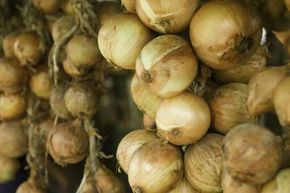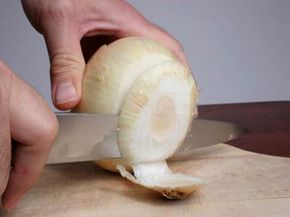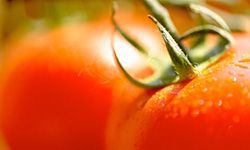Whenever George Washington felt a telltale tickle in his throat or sniffle sneaking up, he tucked in to a particularly pungent bedtime snack: an onion. As the popular tale goes, Washington would eat a cooked onion in order to ward off colds. The Founding Father's homeopathic regimen makes nutritional sense. Pearly white onions are chock-full of vitamins C, B1 and B6, along with a healthy dose of potassium, phosphorus and fiber. Though onions aren't universally appealing to the human palate, they have the potential to lower bad cholesterol, relieve hypertension and minimize blood clotting [source: McNamee].
On the flip side, onions exact a brief (but uncomfortable) physiological toll to those who dare to slice through their white, yellow or red-tinted skins. Within a few moments of opening up an onion, the tangy scent wafts up to our noses, and our eyes begin to water. Sometimes, the onion reaction is just a mild ocular irritant; other times, it's a full-on cry fest.
Advertisement
Unless you're a chef with a freshly broken heart, the tears you shed when chopping onions aren't emotional ones. That leaves two other categories of tears: basal and reflexive. Since basal tears are the ones that hang around our eyes and eyelids to act as a lubricant, that leaves us with reflex tears. The lachrymal glands above the eyelids regulate the release of tears. In the case of reflex crying, an external irritant, such as dust or smoke, triggers nerve endings in the cornea to communicate with the brain stem. The brain registers the irritation in the eye then alerts the lachrymal gland to stimulate tear production to flush away the invader.
If we're chopping onions a few feet away from our eyes, what's causing this weepy reaction? The answer begins in the soil. Onions are part of the plant genus Allium, along with garlic, chives, leeks and about 400 other cousins. These vegetables absorb sulfur in the earth, which helps form a class of volatile organic molecules called amino acid sulfoxides. These sulfoxides are the real tear-jerkers when onions go under the knife.
Advertisement


